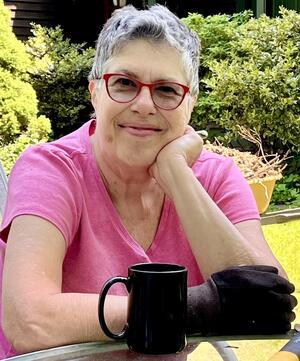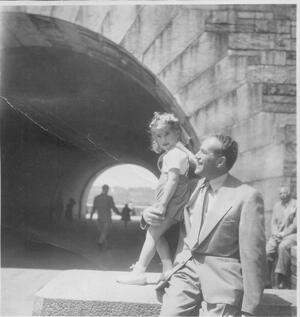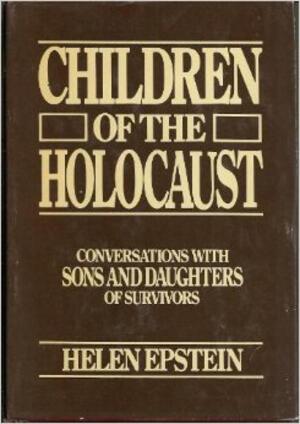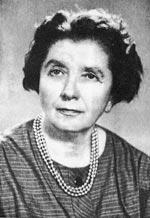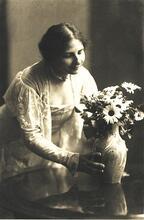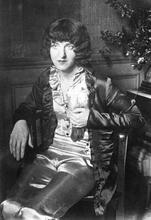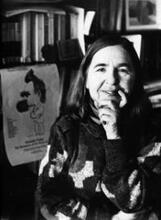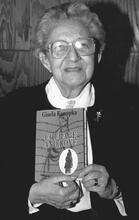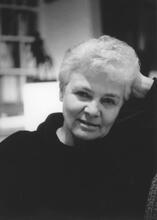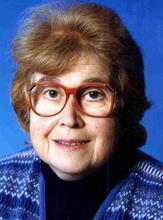Helen Epstein
Prolific memoirist and journalist Helen Epstein immigrated to the United States in 1948 with her parents from Prague, Czechoslovakia. During the Soviet Invasion of Czechoslovakia in 1968, Epstein published her first-person account in the Jerusalem Post, beginning her remarkable career as a journalist. After graduating from the Columbia Graduate School of Journalism, she began work as a freelancer, publishing widely and becoming the first tenured woman journalism professor at New York University in 1981. Epstein is also the author, co-author, editor, and translator of more than ten books, including a non-fiction trilogy about the Holocaust, her late mother’s Holocaust experiences, and her own experiences with sexual harassment, abuse, and healing. Epstein remains a proud New Yorker and retains an enduring connection to Prague and the Jews of the Czech Republic.
Early Life, Education, and Family
Born in Prague, Czechoslovakia, on November 27, 1947, Helen Epstein emigrated to New York in 1948 with her parents, Franci Rabinek and Kurt Epstein, the sole Holocaust survivors of their respective families. Epstein’s father, Kurt, was a two-time Olympic water polo player for Czechoslovakia. After surviving Theresienstadt and Auschwitz, Kurt returned to Prague where he was elected to the Czechoslovak Olympic Committee. After emigrating to the United States with his young family, Kurt Epstein was elected Treasurer of The Association of Czechoslovak Sportsmen in Exile in the Western World and later worked as a cutter in a clothing factory in New York City’s garment district. Before the war, Epstein’s mother, Franci, worked as a dress designer in her mother’s haute-couture salon, where she later became the owner. Once in New York with Kurt and Helen, she established a new salon on the Upper West Side.
A curious and inquisitive child, Epstein grew up in New York City, where she attended P.S. 87. After completing high school at Hunter College High School, she attended City College for two years before earning a full scholarship to the Hebrew University in Jerusalem, where she studied musicology and English literature. She also began to interview her peers who were children of Holocaust survivors and probe her own Jewish identity.
In July 1968, then a 20-year-old, Epstein hitchhiked with two friends through Greece and Yugoslavia, and in mid-August, she arrived alone in Czechoslovakia. Five days later, Epstein was caught in the Soviet invasion of Prague. Holed up in an apartment, she wrote a personal account of her experience of the invasion. With the help of the American Embassy, Epstein was evacuated on Friday, August 23, 1968.
In a 2003 interview, Epstein explained that she took a 26-hour train from Prague to Paris, essentially recreating in reverse the route that many Jews had taken through Germany. She reflected that during the voyage she had felt vulnerable in a way she had never felt before; it was the first major historic event to which she had been an eyewitness. Once safely in Paris, Epstein sent copies of her first-person account to both the New York Times and the Jerusalem Post; not until a few weeks later, while waiting at the airport in Luxembourg for her flight home, did she see it had been published in the Jerusalem Post. The Post was starting a “university page” and hired her as their reporter. She began writing feature stories in November 1968, sparking her remarkable career as a journalist.
Epstein graduated with a BA from Hebrew University in 1970. She went on to attend the Columbia Graduate School of Journalism, earning her master’s degree, getting a job as an instructor of journalism at New York University, and becoming NYU’s first tenured woman journalism professor by the age of 30. During her twelve years as a professor at New York University, she also worked as a freelancer, publishing widely on music and other cultural subjects. Epstein knew she wanted to move toward long-form writing and eventually author serious books, a desire that complemented her sustained interest in exploring her own Jewish roots and family history.
Epstein married Patrick Mehr, of Romanian Jewish parentage, on December 12, 1983; together they have two sons, Daniel and Samuel. Epstein and Mehr co-founded Plunkett Lake Press in 1985.
Journalism
Epstein’s continued journalistic, scholarly, and personal interests related to Jewish, family, and women’s histories are demonstrably clear in her written oeuvre, and in public interviews in which she deals regularly with these themes. In addition to these core interests, Epstein has explored issues of psychology, trauma, and resilience, as well as various other socio-cultural themes throughout her career.
As a journalist, Epstein specialized in long-form journalism about classical musicians and celebrated venues and has published works in periodicals such as The New York Times Magazine, the Sunday New York Times, the Washington Post, the Jerusalem Post, Esquire, and the Boston Review. She has also published academic articles and contributed chapters to several anthologies. During her time as a professor, she about one thousand journalism students and guest lectured at institutions across the United States and abroad. Epstein also was an affiliate of Harvard University’s Center for European Studies and the Hadassah International Research Institute on Jewish Women at Brandeis University.
Writing Family, Holocaust, and Women’s History
In addition to her work as a journalist, Epstein is the author, co-author, editor, or translator of more than ten books. Though trained as an arts reporter who mainly wrote about musicians, theater, and the arts, she was also driven by a curiosity about her family’s roots and Central European history and culture. Her writings that join her journalistic interests with her desire to explore her own roots as the child of Holocaust survivors especially stand out.
Many of Epstein’s works draw on themes of loss and her reflections about missing family members—growing up without grandparents, aunts, uncles, or cousins. While at Hebrew University, Epstein met other children of survivors and was interested in addressing the questions and issues she and her peers faced as “second generation.” She noticed that certain key issues and eccentricities, including speaking several languages, the absence of extended families, an avid and obsessive news consumption, and an unidentifiable intensity that made her feel at home, were common amongst her peers. She observed the ways in which “the narrative of genocide often obscured and sometimes replaced” the family histories in this group. This helped confirm the reality of her own experience (Epstein, 2019 and 1997).
In June 1977, Epstein’s article on intergenerational trauma—which predated the rise of the field of Trauma Studies in the 1980s—was featured on the cover of The New York Times Magazine under the title “Heirs of the Holocaust.” Her book Children of the Holocaust: Conversations with Sons and Daughters of Survivors (1979), followed. It became the first installment of a non-fiction trilogy. The book, the first of its genre, examines intergenerational trauma between survivors and their children and remains an important work on second-generation survivors. Epstein was also interested more generally in the intergenerational transmission of history, culture, and experience.
Always fascinated by a photo of her grandmother, Epstein was also animated by a feminist impulse to write women’s history. She was one of the first writers to take a serious journalistic interest in Jewish women’s history in central Europe. Following the death of her mother in 1989, Epstein wanted to learn more about Franci’s past, leading to the 1997 publication of the sequel to Children of the Holocaust. Where She Came From. A Daughter’s Search for her Mother’s History offers a family saga of three generations of Central European Jewish women. Beyond a traditional memoir journeying into her family’s past, Where She Came From offers a keen social history of nineteenth-century Jewish life in the Czech lands. The third installment of the trilogy, the memoir The Long Half-Lives of Love and Trauma (2017), traces Epstein’s experiences with sexual harassment and abuse, as well as her healing journey through psychotherapy. While writing this final installment, Epstein studied with Dr. Judith Herman at Harvard University. This experience greatly informed her future writings on childhood sexual trauma and on the medical trauma she experienced as a cancer patient during the Covid-19 pandemic. Epstein describes the non-fiction trilogy as a blend of memoir, reportage, and oral history. Irena Klepfisz reviewed the trilogy in Tablet Magazine.
In 2022, Epstein published Getting Through It: My Year of Cancer during Covid. Part memoir and part patient guide, the book documents her experience with GYN cancer and the many conversations she had with doctors, nurses, receptionists, and other patients. In a 2021 interview, she explained that her parents’ experiences as survivors was sustaining while she underwent treatment. She expounds, “I think I really learned from my parents how to get through tough situations…to just stay in the moment, realize who are the people who love you and can help you, and focus on one thing at a time and just get through each day” (Museum of Jewish Heritage, 2021). Gloria Steinem wrote of Epstein’s works, “[I]n Epstein’s hands, truth becomes not only stranger than fiction, but more magnetic, wise and powerful” (Steinem, 2021).
Together with her late mother, Epstein translated the memoir of Holocaust survivor Heda Margolius Kovály, Under a Cruel Star: A Life in Prague 1941-1968. It has since become a classic, and required reading at many colleges. She has also translated or co-written the memoirs of Holocaust survivors Paul Ornstein, Looking Back: Memoirs of a Psychoanalyst; Nava Shan, Acting in Terezin; and her mother’s memoir, Franci’s War: A Woman’s Story of Survival (2020). She is also known for her works on cultural themes and figures, including Music Talks: Conversations with Musicians (1987), featuring interviews with esteemed musicians including Yo Yo Ma and Leonard Bernstein; and the biographies, Joe Papp: An American Life (1994) and Meyer Schapiro: Portrait of an Art Historian (2019).
Epstein prepared an exhibit about her father and the Epstein family for the Podripsky Museum in Roudnice nad Labem in the Czech Republic, which was shown in the Epsteins’ former family home and the Terezin Memorial in fall of 2022 and the American Embassy in Prague in 2023. Epstein continues to write and publishes regular blog posts for New England cultural site, The Arts Fuse.
Selected Works by Helen Epstein
Children of the Holocaust: Conversations with Sons and Daughters of Survivors. New York: Penguin Books, 1979.
Music Talks: Conversations with Musicians. New York: Penguin Books, 1988.
Joe Papp: An American Life. New York: Da Capo Press, 1994.
Where She Came from: A Daughter's Search for Her Mother's History. Lexington, MA: Plunkett Lake Press, 1997.
Meyer Schapiro: Portrait of an Art Historian. Lexington, MA: Plunkett Lake Press, 2010.
Looking Back: Memoir of a Psychoanalyst. Lexington, MA: Plunkett Lake Press, 2015.
The Long Half-Lives of Love and Trauma. Lexington, MA: Plunkett Lake Press, 2018.
Acting in Terezin. Lexington, MA: Plunkett Lake Press, 2019.
Franci's War: A Woman's Story of Survival. New York: Penguin Books, 2020.
Getting Through It: My Year of Cancer During Covid. Lexington, MA: Plunkett Lake Press, 2022.
Berger, Alan L. Epstein, Helen (1947 –). Facts On File, 2009.
“Book Excerpt: Helen Epstein's ‘Getting through It: My Year of Cancer during Covid.’” The Arts Fuse, May 11, 2022. https://artsfuse.org/256343/book-excerpt-helen-epsteins-getting-through-it-my-year-of-cancer-during-covid/.
Brady, Joan April. “The Greatest Poetry Reading I've Ever Seen.” Literary Hub, April 12, 2019. https://lithub.com/the-greatest-poetry-reading-ive-ever-seen/.
Cosentino, Annalisa. “In Search of Truth: An Interview with Helen Epstein.” Slovo a Smysl / Word & Sense, no. 38 (December 2021): 141–46.
Epstein, Helen. “Heirs of the Holocaust.” The New York Times Magazine, June 19, 1977.
Epstein, Helen. “Helen Epstein Author and Speaker.” Home. http://www.helenepstein.com/index.html.
Epstein, Helen. “My Father, the Jewish Athlete.” The Jewish Writing Project, April 13, 2009. https://jewishwritingproject.com/2009/04/13/my-father-the-jewish-athlete/.
Epstein, Helen. “Perspective | Author Who Dealt with Cancer during Covid Offers Some Advice.” The Washington Post, June 10, 2022.
Epstein, Helen. “Tears in Prague.” The Jerusalem Post, August 28, 1968. http://www.helenepstein.com/resources/JPost-1968.pdf.
“Franci Rabinek Epstein.” Jewish Book Council, January 24, 2020. https://www.jewishbookcouncil.org/franci-rabinek-epstein.
Ghert-Zand, Renee. “Sexually Explicit Memoir of Women’s Abuse in Nazi Camps Finally Sees Light.” The Times of Israel, October 10, 2020. https://www.timesofisrael.com/sexually-explicit-memoir-of-womens-abuse-in-nazi-camps-finally-sees-light/.
Hunter College High School Alumni. “Helen Epstein '65 Publishes a Memoir - The Third of a Non-Fiction Trilogy.” Hunter College High School Alumnae/i Association, June 20, 2018. https://hchsaa.org/new-books-by-alums-rss-feed-capturing-the-voices-of-dissenters-11-25-2020-tracing-the-history-of-the-dedicated-men-and-women-in-military-service-journalist-and-author-chris-lombardi/.
Klepfisz, Irena. “The Half-Life of Sexual Abuse in a Holocaust-Survivor Family.” Tablet Magazine, June 27, 2018. https://www.tabletmag.com/sections/arts-letters/articles/sexual-abuse-holocaust-survivor-epstein.
Levy, Alan. “Helen Epstein: Growing up Czech in New York - Prague Post.” Accessed October 27, 2022. https://www.praguepost.com/archivescontent/15615-helen-epstein-growing-up-czech-in-new-york.html.
“Kurt Epstein.” The New York Times, February 2, 1975. https://www.nytimes.com/1975/02/02/archives/kurt-epstein.html.
“Helen Epstein in Conversation with Initiative Dessauer Ufer.” YouTube, June 14, 2021. https://www.youtube.com/watch?v=fvhyP1VCm0g&ab_channel=InitiativeDessauerUfer.
“How an Established Author and Techie Husband Embraced Electronic Publishing: Jewish Federation of the Berkshires.” Accessed November 26, 2022. https://www.jewishberkshires.org/jewish-federation-of-the-berkshires/how-an-established-author-and-techie-husband-embraced-electronic-publishing.
Museum of Jewish Heritage. “Helen Epstein's Reflections on Children of Holocaust Survivors.” YouTube, April 16, 2021. https://www.youtube.com/watch?v=5bsVFRdHg0o&ab_channel=MuseumofJewishHeritage.
"Podium: Helen Epstein: The Holocaust was my parents' defining story; From a speech by the Holocaust writer at the Remembering for the Future 2000 conference, in London." Independent [London, England], July 19, 2000, 4. Gale OneFile: News. Accessed November 27, 2022.
Regensburg, Robin. "The family detective: author Helen Epstein helps people discover their heritage." Jewish Advocate, July 22, 2011.
Smelser, Ronald. 2002. “Alan Berger - Second-Generation Jewish Identity and ‘Working Through’ the Shoah: Helen Epstein’s Journey from Children of the Holocaust to Where She Came From.’” In Lessons and Legacies V: The Holocaust and Justice, edited by Ronald Smelser. Evanston, IL: Northwestern University Press, 2014.
Svobodova, Katerina. “A Czech Woman’s Journey through the Holocaust.” Prague Monitor, March 9, 2020. https://praguemonitor.com/life/09/03/2020/2020-03-09-czech-womans-journey-through-holocaust/.
UCtelevision. “Franci's War – with Helen Epstein.” YouTube. University of California Television (UCTV), November 2, 2021. https://www.youtube.com/watch?v=jzBo-uYLmZI&ab_channel=UniversityofCaliforniaTelevision%28UCTV%29.
Yelin, Amy. “An Interview with Helen Epstein.” Accessed October 22, 2022. http://www.helenepstein.com/resources/Writers-Chronicle-Epstein-Interview.pdf.

